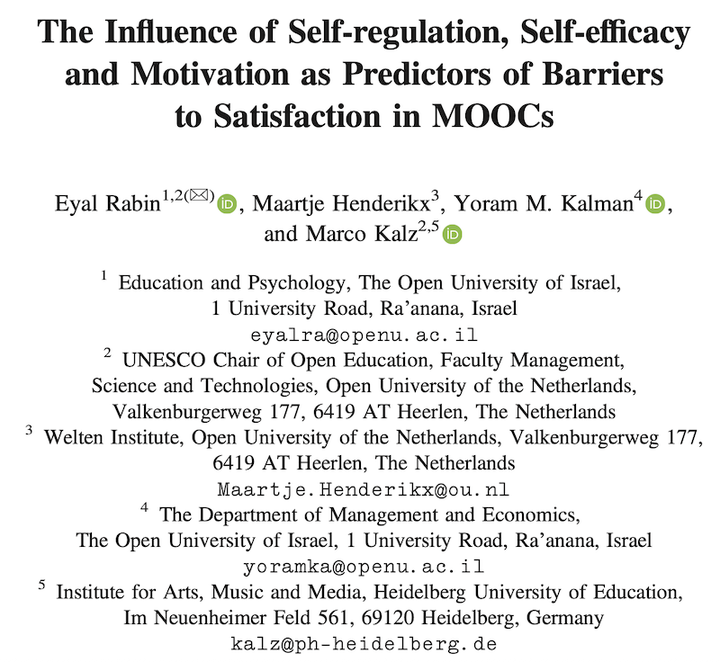The Influence of Self-regulation, Self-efficacy and Motivation as Predictors of Barriers to Satisfaction in MOOCs

Abstract
This study focuses on identifying the barriers to satisfaction of MOOC participants, and the predictors of these barriers. Five hundred and forty-two English as a Second Language MOOC participants responded to pre- and post-questionnaires. Using exploratory factor analysis three kinds of barriers were identified, namely: ‘Lack of interestingness/relevance’, ‘Lack of time/bad plan-ning’ and ‘Lack of knowledge/technical problem’. The effects of the participant’s age, gender and level of self-efficacy, motivation, self-regulation learning skills and the intention to complete the course were analyzed as predictors of those barriers. Theoretical and practical implications regarding online learner satisfac-tion are discussed.
Rabin, E., Henderikx, M., Kalman, Y.M., Kalz, M. (2019). The Influence of Self-regulation, Self-efficacy and Motivation as Predictors of Barriers to Satisfaction in MOOCs. In Scheffel, M., Broisin, J., Pammer-Schindler, V., Ioannou, A., Schneider, J. (eds) Transforming Learning with Meaningful Technologies. (pp.631-635) EC-TEL 2019. Lecture Notes in Computer Science, vol 11722. Springer, Cham. https://doi.org/10.1007/978-3-030-29736-7_55